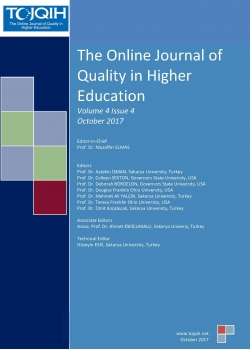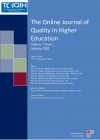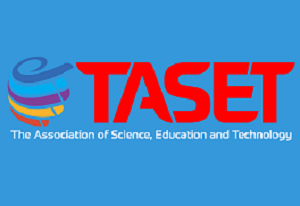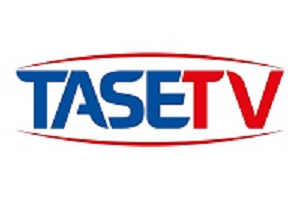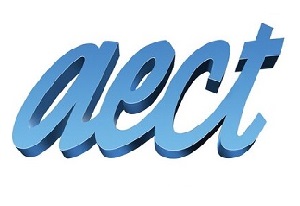TOJQIH - Volume 4 - Issue 4 - October 2017
 BENCHMARKING IMPLEMENTATIONS OF SAKARYA UNIVERSITY IN THE FRAMEWORK OF EFQM MODEL
BENCHMARKING IMPLEMENTATIONS OF SAKARYA UNIVERSITY IN THE FRAMEWORK OF EFQM MODEL Hatice SARIALTIN
Abstract:
From the Perspective of European Foundation of Quality Management – EFQM Excellence Model, the purpose
of the study is to reveal the benchmarking implementation of Sakarya University (SAU) and extend the study
from SAU to national level, to Turkish Higher Education sector to find out where benchmarking stands in
Turkish Higher Education System and How it can be institutionalized according to its own methodology by
using case study as qualitative research method through extensive literature review and rich primary data
gathered multi methods providing triangulation.
 DETERMINATION OF SOCIOTROPY AND AUTONOMY LEVELS OF FRESHMAN AND SENIOR NURSING STUDENTS
DETERMINATION OF SOCIOTROPY AND AUTONOMY LEVELS OF FRESHMAN AND SENIOR NURSING STUDENTS Dilek Y─▒lmaz, Yurdanur Dikmen, G├╝lseren ├ć─▒tak Tun├¦, Funda Erol, Dilek Karaman
Abstract:
Purpose of this research is to determine sociotropy-autonomy personal characteristics of freshman and senior
nursing students, who continue their education, and examination of related factors. Research was conducted on
Uludag University Health High School Nursing Department students that continue their education as freshmen
and seniors in the 2015-2016 Academic Year Spring Term. In the term that study was conducted, 136 volunteer
students created the research universe. Research data was gathered with “Student Information Form” and
Sociotropy-Autonomy Scale (SAS). Average of sociotropy points was determined as 76,30±13,42. Point average
of sociotropy subscale are; in the dimension of “disapproval concerns” was found as 19,13±6,83 in dimension of
“separation anxiety” was 30,09±7,83 and in the dimension of “pleasing others” was found as 13,29±3,88.
According to this, it can be said that, by considering the point scale which can be taken from scale, sociotropy
personal characteristics of students are above the intermediate level. In addition, it was seen that autonomy
points average was 79,41±14,26. In the points average of autonomy subscale dimensions, “personal success”
was 33,84±6,75, “freedom” was 34,31±6,11 “liking loneliness” was determined as 13,17±4,05. It was
determined that in the students who are in last year of their education and students that have elementary families,
sociotropy and autonomy personal characteristics were determined as significantly more increased (p<0,05).
 EMBEDDED-IMPROVEMENT BASED ON EMBEDDEDCONSULTATION IN HE IN LINE WITH ENQA-ESG, QUALITY AND BPM STANDARDS
EMBEDDED-IMPROVEMENT BASED ON EMBEDDEDCONSULTATION IN HE IN LINE WITH ENQA-ESG, QUALITY AND BPM STANDARDS Abdi KURT, Zeki YARAR
Abstract:
This study is a look at ENQA-ESG ’üø1’üØ from the angle of European Higher Education Quality Space (EHE-QS)
which covers several quality standards, models, frameworks and methodologies for the sake of embeddedimprovement.
EHE-QS is a new concept laid down with this study and will be embodied during the paper. With
the version of May-2015, ESG is more close to team playing and more sensitive to the environment (Bologna
tools like National Qualifications-NQ frameworks, European Credit Transfer System-ECTS, Diploma
Supplement-DS) ’üø2’üØ in which it is expected to play. There are also other quality standards and models which
span whole HE activities as well as the area, where ESG is involved in particular. It can be said that ESG is just a
quality player in European HE Area like ISO 9001, EFQM and etc., which form EHE-QS. These quality players
should pay regard to each other, communicate and collaborate with and integrate to each other in melting point.
The basic question in the study is that “what is the main quality playmaker” in this EHE-QS, is it ESG, ISO 9001
’üø3’üØ or EFQM ’üø4’üØ or other programme-unique quality players like EUR-ACE ’üø5’üØ? After determining main quality
player, the next question is how “Embedded- Improvement based on Embedded-Consultation” will be embodied
with the main quality structure in line with ESG, ISO 9001 and BPM standards ’üø6’üØ. All issues in the study will
be taken in the light of the experiences gained in Mersin University
 EXISTING CRITERIA DETERMINING COURSE QUALITY IN DISTANCE EDUCATION
EXISTING CRITERIA DETERMINING COURSE QUALITY IN DISTANCE EDUCATION G├╝lay Ekren
Abstract:
ABSTRACT
Today, while governments mostly focus on indicators such as productivity, cost effectiveness, social satisfaction,
and accountability as quality indicators, higher education institutions take into account fundamental indicators
such as student output, learning and teaching processes, student and staff support, assessment, evaluation, and
resources. These fundamental indicators can be varied institutional-based, program-based or course-based. In the
context of higher education, quality assurance of distance education actually requires different quality indicators
and different regulations from traditional higher education. On the other hand, quality assurance in distance
education is more debated than traditional education. Currently, people do not trust the quality of distance
education. Therefore, initiatives to increase the quality of distance education may be increased the assurance in
distance education.
The aim of this study is to examine the studies which provide criteria to evaluate online courses for creating or
improving quality standards in online environments in the context of higher education and also to make a
descriptive analysis by presenting differences and similarities between the course quality measures of these
studies. This study is expected to guide the online course developers, faculty, and administration of higher
education institutions to improve or to redefine the quality of their proposed online courses.
 IMPACT OF TEACHERSŌĆÖ USE OF FOLKTALES ON THE PERFORMANCE OF PUPILS IN READING COMPREHENSION IN PRIMARY SCHOOLS IN KADUNA STATE, NIGERIA
IMPACT OF TEACHERSŌĆÖ USE OF FOLKTALES ON THE PERFORMANCE OF PUPILS IN READING COMPREHENSION IN PRIMARY SCHOOLS IN KADUNA STATE, NIGERIA Hanna Onyi Yusuf
Abstract:
The study aimed at investigating the impact of teacher’s use of folktales on the performance of pupils in reading
comprehension in primary schools in Kaduna, Nigeria. The sample of the study consisted of forty (40) primary
four pupils from two randomly selected primary school, tagged, school “A” and school “B” in Kaduna North
Local Government Area. School “A” was assigned as the experimental group while school “B” was assigned as
the control group. Both groups were taught reading comprehension for eight weeks. A pre-test post-test
experimental design for equivalent groups was used. Pupils were tested using reading comprehension test called
retelling test. Results showed that the experimental group out performed the control group. This indicates that
the use of folktales by teachers in reading comprehension may have a significant positive effect on pupils’
reading comprehension. Based on the findings, it was recommended among others, that teachers should use
folktales to enrich their reading comprehension lessons and to make such lessons more lively, interesting and
meaningful. The reading component of the English Language Curriculum should be organized around stories
that are deeply rooted in core values of the society. The curriculum should include reading comprehension
passages that are based on folktales that teach moral lessons. Such moral lessons should be deeply rooted in the
core values of the society.
 LEADERSHIP STYLES KEY TO IMPLEMENTING PROFESSIONAL LEARNING COMMUNITIES IN EDUCATION: LITERATURE REVIEW
LEADERSHIP STYLES KEY TO IMPLEMENTING PROFESSIONAL LEARNING COMMUNITIES IN EDUCATION: LITERATURE REVIEW Justin Willis
Abstract:
Leadership is an important part of developing effective PLCs; thus, school leaders must become familiar with
research efforts regarding characteristics of effective educational leaders to facilitate and support of the
development of learning communities. Research has shown that when the PLC model is properly implemented, it
has the capacity to improve student achievement (Hunter-Boyce, 2009). The purpose of this literature review is
to present evidence of the association between leadership styles and PLCs. Extant literature supports the idea that
school leadership is a key factor to developing and maintaining effective PLCs (Wahlstrom & Louis, 2008).
 PROSPECTS FOR THE DEVELOPMENT OF TOURISM EDUCATION IN KAZAKHSTAN
PROSPECTS FOR THE DEVELOPMENT OF TOURISM EDUCATION IN KAZAKHSTAN Zakiryanov Baurzhan, Imangulova Tatyana, Prokofyeva Marina, Rassulova Saodat
Abstract:
Today's reality is that with the development of universal mobility the requirement of society
increases in highly skilled shots in area of tourism. A specialist must possess not only theoretical, scientific and
practical knowledge but also to improve, have the opportunity to develop in new directions, able to use new
interactive resources, create the new ideas, know - how and approaches. Quality of training of professional
personnels, comparableness of level qualifications of different countries, becomes an important task, that assists
the increase of effective mobility of human capital. To date such important tasks stand in modern industry of
tourism, as there is upgrading of training of tourist personnels, producing of specialists in area of the services of
new generation, highly sought at an international level.
 STUDENT SATISFACTION IN ENGINEERING EDUCATION USING WLC AND GIS
STUDENT SATISFACTION IN ENGINEERING EDUCATION USING WLC AND GIS B├╝lent BOSTANCI
Abstract:
Computer and communication technologies have been developing very quickly from past to present. This
provides access to information and makes sharing of information easier than ever. Universities are one of the
places where information is produced and used extensively. The main activities of universities consist of
producing knowledge, transferring knowledge to new generation, making them gain profession, and educating
people who research and think. Knowledge transfer to students is possible through lectures given by instructors.
Feedback mechanisms on lectures’ effectiveness and education quality are used by most educational institutions
in our country and around the world.
It is not possible to certainly limit the number of factors affecting education quality. However, a weighted
average value can be generated from the combination of selected criteria and evaluator’s answers. This value,
called the suitability, is calculated for all alternatives, and then the alternative with the highest suitability is
determined as the best choice.
The education quality survey questionnaire consists of 41 questions (criteria) regarding the subjects including
instructors (teaching staff), teaching and learning services infrastructure, physical conditions, university services
and activities, management and student affairs, preparation of the students for professional career life and their
satisfaction with career opportunities. Criteria weights are determined by the Analytical Hierarchy Process
(AHP) method, which is a multi-criteria decision-making technique. The questionnaire has been applied on 400
students who were studying at Erciyes University Faculty of Engineering, and the answers given to 41 questions
were transformed into a single suitability using the Weighted Linear Combination (WLC) method. Finally, a
Student Satisfaction Map was created in Geographic Information Systems (GIS) based engineering from the
obtained results by using the Inverse Distance Weighting (IDW) interpolation method.

